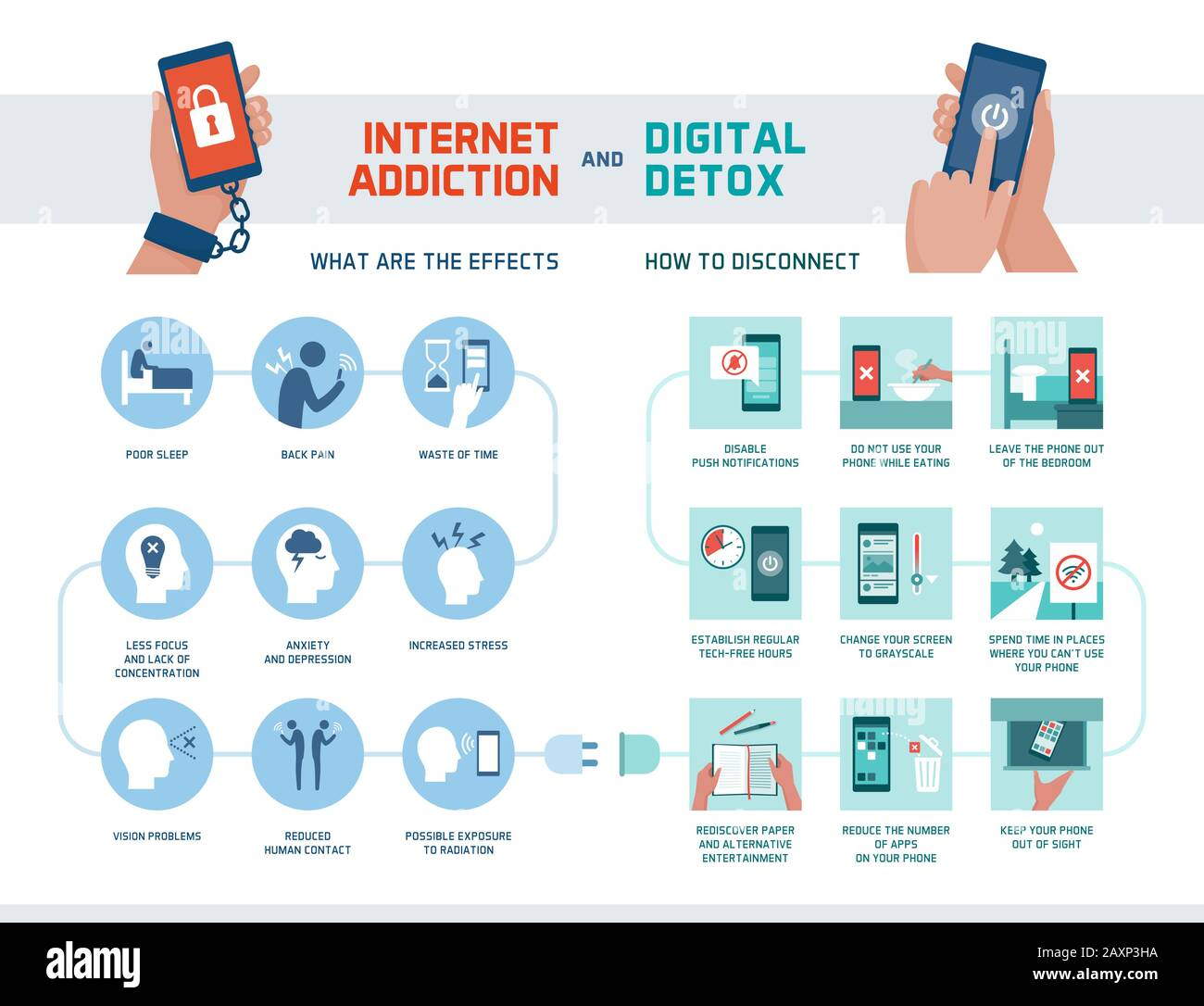Internet addiction has emerged as a significant public health concern, impacting countless lives around the globe. The health effects of internet addiction are alarming, with studies revealing a direct link between excessive online activity and a weakened immune system. Individuals suffering from internet addiction symptoms often experience higher levels of stress and are more susceptible to illnesses like colds and flu. As technology continues to evolve, understanding the impact of technology on health becomes crucial, especially in light of recent findings that indicate internet addicts could be up to 30% more likely to fall ill. This growing dependency not only affects mental well-being but also has dire consequences on physical health, making it imperative to address this rampant issue.
The reliance on digital platforms, often termed as excessive screen time or digital dependency, has led to a concerning trend in today’s society. Engaging in prolonged online activities can impact users adversely by increasing their vulnerability to stress and health problems. Such behavioral patterns highlight the adverse outcomes of technology overuse, including mood disorders and sleep issues, emphasizing the urgency to understand these phenomena. Many individuals remain unaware of their digital habits, often mistaking them for productivity while neglecting the underlying internet addiction challenges they face. As we delve into this topic, it becomes essential to explore the connections between technology use, lifestyle choices, and overall health.
Understanding Internet Addiction and Its Effects
Internet addiction is characterized by excessive use of online resources, often leading to neglect of personal and professional responsibilities. Individuals suffering from this condition may find themselves drawn to social media, online gaming, or other internet activities to the detriment of their health and relationships. The compulsive need to stay connected can develop into a severe form of dependency, which manifests in various detrimental behaviors and symptoms, such as anxiety, irritability, and withdrawal when offline.
The health effects of internet addiction are profound and can range from psychological issues like depression to physical ailments. Research has shown that excessive internet use weakens the immune system, making individuals more susceptible to infections and illnesses. This weakening effect is alarmingly evident in statistics indicating that internet addicts are 30% more likely to suffer from colds and flu, highlighting the urgent need for awareness and intervention.
Frequently Asked Questions
What are the health effects of internet addiction?
Internet addiction can lead to various health effects, including increased susceptibility to illnesses like colds and flu. Studies have shown that people who are addicted to the internet experience a weakened immune system, resulting in 30% more frequent illnesses compared to those with moderate internet use. Additionally, internet addiction is associated with depression, sleep deprivation, and unhealthy lifestyle choices that further impact overall health.
How does internet addiction impact the immune system?
Internet addiction negatively impacts the immune system, making individuals more vulnerable to diseases. Research indicates that excessive internet users experience significant stress and hormonal changes, particularly in cortisol levels, which directly affect immune function. These changes can lead to a heightened risk of infections and other health issues.
What symptoms indicate internet addiction?
Symptoms of internet addiction include compulsive internet use, neglecting daily responsibilities, sleep deprivation, anxiety when offline, and possible physical health issues like fatigue and increased illness. Individuals may also exhibit behaviors such as binge-watching, excessive gaming, or social media scrolling that interfere with their daily lives.
Is there a connection between stress and internet addiction?
Yes, stress and internet addiction are closely linked. Internet addicts frequently experience high levels of stress, especially when disconnected from the internet. This stress can trigger hormonal imbalances, particularly with cortisol, which can subsequently weaken the immune system, making them more susceptible to various health conditions.
What impact does technology have on health in the context of internet addiction?
Technology, when misused through internet addiction, can have a detrimental impact on health. Excessive online use has been linked to conditions like anxiety, depression, and physical ailments due to sedentary behavior. Furthermore, internet addiction can disrupt sleeping patterns, leading to sleep deprivation and associated health risks, compounding the negative effects on an individual’s health.
| Key Point | Description |
|---|---|
| Excessive internet addiction | Leads to increased susceptibility to illnesses like colds and flu. |
| Health issues associated with internet addiction | Internet addicts often experience depression, sleep deprivation, and loneliness. |
| Impact on immune system | Excessive online time can weaken the immune system and increase the incidence of colds and flu by 30%. |
| Stress from disconnection | Internet addicts experience heightened stress levels when offline, affecting cortisol levels negatively. |
| Associated behavioral patterns | Internet addicts may also have unhealthy habits, including poor sleep, eating disorders, smoking, and alcohol consumption. |
| Impact of usage patterns | The health risks may vary based on how the internet is used, not just the amount of use. |
Summary
Internet addiction poses significant health risks, making individuals more vulnerable to illnesses such as colds and flu. Research underscores the importance of addressing this modern-day issue, as it is independent of other factors like depression and sleep deprivation. Prioritizing internet use balance is essential to safeguard physical and mental well-being.
